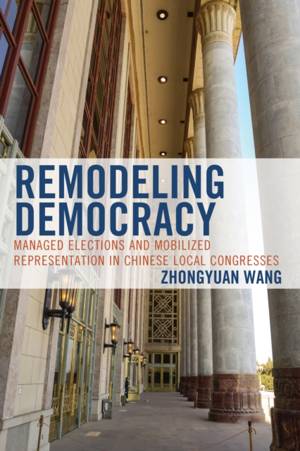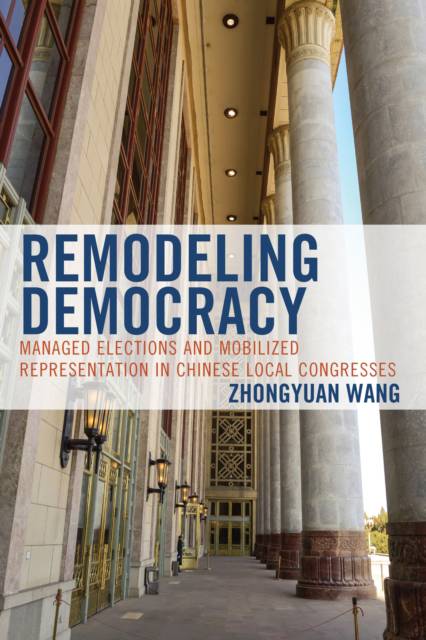
- Afhalen na 1 uur in een winkel met voorraad
- Gratis thuislevering in België vanaf € 30
- Ruim aanbod met 7 miljoen producten
- Afhalen na 1 uur in een winkel met voorraad
- Gratis thuislevering in België vanaf € 30
- Ruim aanbod met 7 miljoen producten
Zoeken
Remodeling Democracy
Managed Elections and Mobilized Representation in Chinese Local Congresses
Zhongyuan Wang
€ 254,45
+ 508 punten
Omschrijving
In Remodeling Democracy, Zhongyuan Wang argues that the Chinese Communist Party uses formal democratic institutions to sustain its rule. These institutions combined with the Party's leadership and the rule of law form a "socialist democracy" that serves as an alternative to liberal democracy.
Specificaties
Betrokkenen
- Auteur(s):
- Uitgeverij:
Inhoud
- Aantal bladzijden:
- 340
- Taal:
- Engels
- Reeks:
Eigenschappen
- Productcode (EAN):
- 9781793621085
- Verschijningsdatum:
- 6/10/2020
- Uitvoering:
- Hardcover
- Formaat:
- Genaaid
- Afmetingen:
- 152 mm x 229 mm
- Gewicht:
- 666 g

Alleen bij Standaard Boekhandel
+ 508 punten op je klantenkaart van Standaard Boekhandel
Beoordelingen
We publiceren alleen reviews die voldoen aan de voorwaarden voor reviews. Bekijk onze voorwaarden voor reviews.







